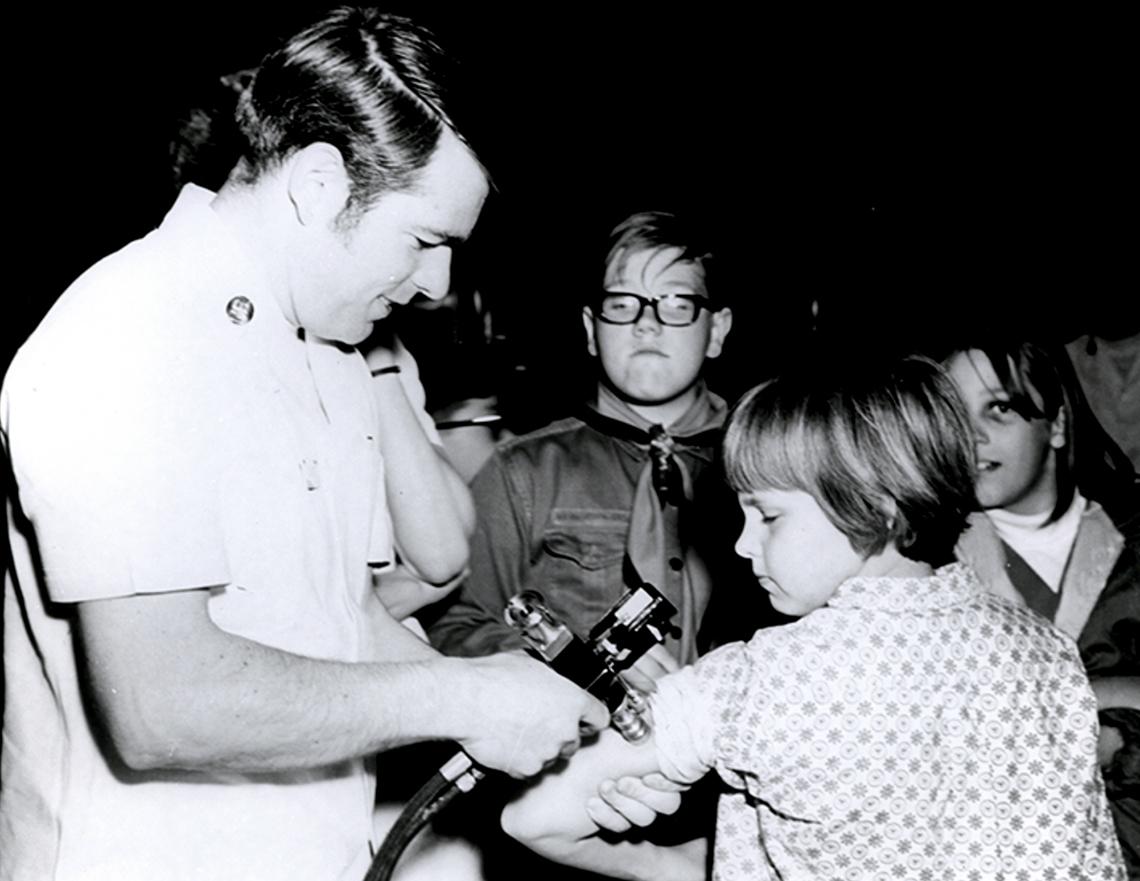NLM Hosts Exhibition on Rubella
When modern medicine nearly eradicates a disease, it can be easy to lose touch with the pain and disability the disease once wreaked on society as the decades roll by. In 1964, a rubella (German measles) epidemic raged in America, affecting tens of thousands of families. Scientists rushed to develop screening tests and, ultimately, a vaccine, which became available in 1969.
To remember how experts and parents tried to limit rubella’s impact before an effective vaccine eliminated the disease from the United States, the National Library of Medicine curated an exhibition to honor the 50th anniversary of the first commercially available rubella vaccine, developed by two NIH intramural researchers. The exhibition—Rashes to Research: Scientists and Parents Confront the 1964 Rubella Epidemic—features photos, posters and documents chronicling the impact of the disease and the development, licensing and administering of the vaccine that nearly eliminated rubella in the United States.
Highly contagious, rubella infections begin with a cold-like illness and fever, followed by a rash. But many who contracted the virus had no symptoms at all. In 1964-1965, at the height of the epidemic, 20,000 children were born with congenital rubella syndrome, which caused cognitive disabilities and serious heart, hearing and vision problems related to rubella exposure during pregnancy. Tens of thousands more families lost or terminated pregnancies. When the vaccine debuted, demand was enormous; public health officials vaccinated almost 40 million children over a 4-year period.
The exhibition is on display in Bldg. 38 until Sept. 25. Its website will remain online at https://www.nlm.nih.gov/exhibition/rashestoresearch/index.html.


